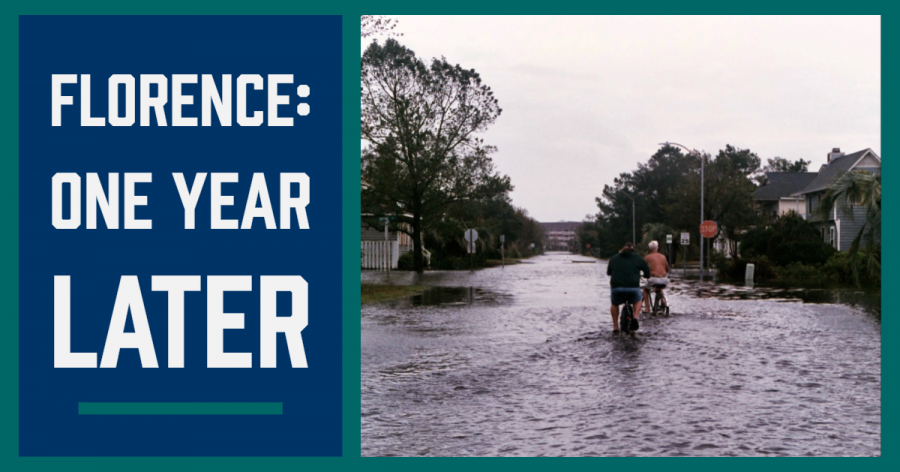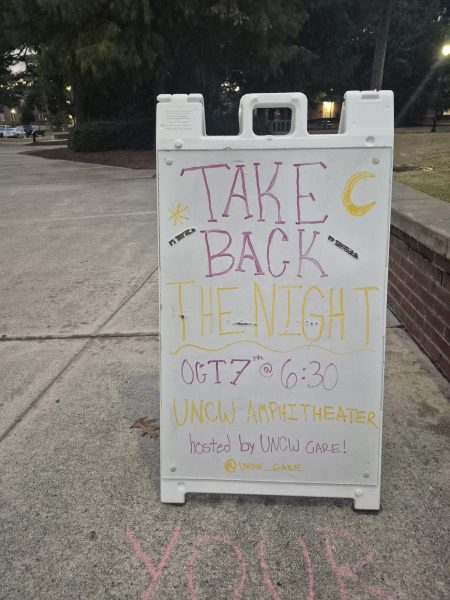Florence: one year later, introduction
September 14th marks one full year since Hurricane Florence made landfall in our community. Although the storm was moving at just 6 mph upon hitting land, sustained winds were around 90 mph. The slow-moving hurricane dragged itself over eastern coast of the United States, killing over 50 people and causing over 24 billion dollars in damages, despite being degraded to a tropical storm by the 15th of September. Even though the hurricane was fairly slow, most of the damage came from fresh water flooding, with some areas receiving as high as 35 inches of rain water.
Jeff Byrd, associate administrator for the Office of Response and Recovery at FEMA, said, “this is not a storm that on day three the roads are gonna be back and trees will be back green and power will be back on.”
On September 7th, Roy Cooper, Governor of North Carolina, declared a state of emergency. President Trump followed suit on September 10th, authorizing the Department of Homeland Security and the Federal Emergency Management Agency to coordinate all disaster relief efforts, as well as declaring a state of emergency in North and South Carolina.
The next day, it was announced that federal emergency aid was being made available to North Carolina in anticipation of the hurricane. The University of North Carolina Wilmington was struck particularly hard, with Dobo Hall being seriously damaged and the university apartments facing demolition after extensive damage made the buildings unrecoverable. More than a million residents faced mandatory evacuations. Volunteers, celebrities, and groups from across the nation quickly flocked to provide relief efforts.
Join UNC Wilmington’s own student newspaper as we cover the impact and aftermath of Hurricane Florence in a serial piece, Florence: One Year Later.
This series will cover the impacts of Hurricane Florence not only on the University Of North Carolina Wilmington, but the city of Wilmington as a whole, featuring interviews from students, professors, residents, and relief workers. The focus of the series will be to remember impact, the aftermath, and most importantly, how it changed the local community.








